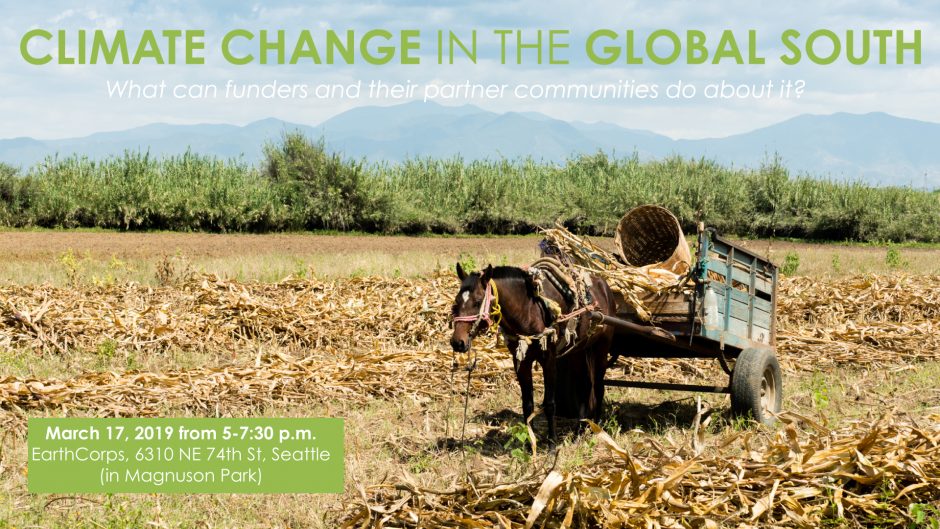Pangea Learns More About Climate Change
Did you know that the people who will suffer most from climate change in the coming decades are the ones who have done the least to cause it?
It’s widely acknowledged[1] that the effects will be felt most severely by vulnerable populations in what is known as the Global South—non-industrialized countries near or south of the equator. Pangea’s partners are found in those countries, and they are already suffering—from longer periods of extreme heat, from more frequent and longer droughts, from unpredictable rains and extreme storms, from crippling floods.
On March 17, nearly 50 Pangea members and friends gathered to consider the impact of climate change on those communities and what might help them adapt to or even mitigate those effects.

Did you know that as temperatures rise, crop yields and the nutrient content of each plant drop?
Yet the world will need more food, not less, as population continues to increase. Dr. Michelle Tigchelaar from Stanford University explained the link between climate and food security and offered some suggestions for how communities can adapt. Those suggestions include investing in diversified food systems (agroecology, permaculture), protecting land tenure, ensuring access to markets and storage, and supporting development of heat- and drought-tolerant crops.
To complement Michelle’s presentation, Pangea screened a short video produced by BioGardening Innovations, one of our partners that trains farmers in sustainable, high-yielding farming techniques in western Kenya.
Renewable energy is another important tool in fighting climate change. Globally, 1.1 billion people don’t have access to electricity—most of them in sub-Saharan Africa and Asia where highly polluting kerosene lamps are still the main source of lighting. Brad Burkhartzmeyer, co-founder of Remote Energy, showed us how solar systems can be a cost-effective, sustainable path to electrification—and an economic opportunity for local entrepreneurs at the same time.
Land rights and land usage are less obvious adaptations to the threat of climate change but can, in fact, make a difference. Christine Anderson, an attorney who works for Landesa on land tenure and community land stewardship and conservation, explained how land rights encourage the types of investments that can make farmers more resilient, such as tree planting, terracing, or fallowing. Only when farmers feel secure in their rights to the land are they willing to make these long-term investments.
As Pangea continues to reflect on how climate might be incorporated into its work, there are many avenues available. Surprisingly, girls’ education is one of the most effective interventions,[2] something Pangea has long supported. We will continue this conversation with more educational events and discussions in the coming year.
This post was written by Pangea Giving member Chris Doerr. Pangea Giving members can access the Member Portal for some additional resources from this event.
Notes:
[2] Hawken, Paul. Drawdown : the Most Comprehensive Plan Ever Proposed to Reverse Global Warming. Penguin Books, 2017.
